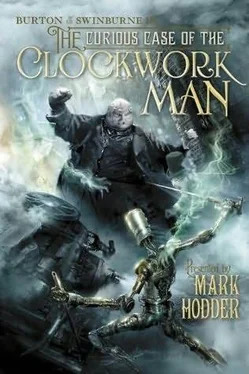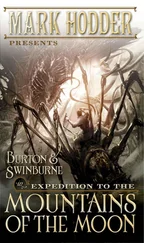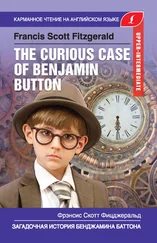Mark Hodder - The curious case of the Clockwork Man
Здесь есть возможность читать онлайн «Mark Hodder - The curious case of the Clockwork Man» весь текст электронной книги совершенно бесплатно (целиком полную версию без сокращений). В некоторых случаях можно слушать аудио, скачать через торрент в формате fb2 и присутствует краткое содержание. Жанр: Детективная фантастика, на английском языке. Описание произведения, (предисловие) а так же отзывы посетителей доступны на портале библиотеки ЛибКат.
- Название:The curious case of the Clockwork Man
- Автор:
- Жанр:
- Год:неизвестен
- ISBN:нет данных
- Рейтинг книги:3 / 5. Голосов: 1
-
Избранное:Добавить в избранное
- Отзывы:
-
Ваша оценка:
- 60
- 1
- 2
- 3
- 4
- 5
The curious case of the Clockwork Man: краткое содержание, описание и аннотация
Предлагаем к чтению аннотацию, описание, краткое содержание или предисловие (зависит от того, что написал сам автор книги «The curious case of the Clockwork Man»). Если вы не нашли необходимую информацию о книге — напишите в комментариях, мы постараемся отыскать её.
The curious case of the Clockwork Man — читать онлайн бесплатно полную книгу (весь текст) целиком
Ниже представлен текст книги, разбитый по страницам. Система сохранения места последней прочитанной страницы, позволяет с удобством читать онлайн бесплатно книгу «The curious case of the Clockwork Man», без необходимости каждый раз заново искать на чём Вы остановились. Поставьте закладку, и сможете в любой момент перейти на страницу, на которой закончили чтение.
Интервал:
Закладка:
“I have never given credence to ghosts, but I've read much about what spiritualists term the projection of the ethereal or astral double. Occultists state that it is perfectly possible to pass through solid objects while in astral form, but it should not be done too often, as it can disrupt the connection between the ethereal and the physical bodies. My supposition is that we witnessed an individual in such a form, and they solidified their knuckles for the purpose of searching the house rather than risk being forever separated from their corporeal body.”
Swinburne jerked his limbs spasmodically-a sign of his growing excitement.
“So we're dealing with a spiritualist, a table-tapper?”
“That's my current theory, and one who appears to be using the Cambodian fragments and the South American Eye to somehow transmit and amplify mediumistic projections. I'm almost certain that support for the Claimant-who anyone in their right mind can see is a phony-is, through this method, being artificially generated to stir up the masses. What puzzles me is why the emanations influence some and not others. You are apparently rather sensitive to them, though more resistant when you're drunk. Myself, Trounce, and Honesty feel them only faintly, while Herbert here is not touched at all.”
“From what I can see, the working classes are the most susceptible,” put in Swinburne. “Though I'd hardly place myself in that category. Whereas Herbert-”
“-is a bloomin’ philosopher,” the vagrant interjected. He tore his eyes away from the mechanical man and peered at the poet from beneath his bushy grey eyebrows, one of which was raised speculatively.
“Quite so. Quite so,” Swinburne conceded. “Forgive me for the observation, though, my dear chap, but you seem to be a singularly unsuccessful one. What exactly is your philosophy? Perhaps the nature of your thoughts bears some relation to your apparent immunity.”
“That's an interesting hypothesis,” Burton said. He faced his two guests. “Talk to us, Herbert.”
“Hmmph!” Spencer grunted. “You'll have to give me a minute or two to prepare meself. It don't come easy to me, I'm afraid.”
“Go ahead. Take whatever time you need.”
The king's agent and his assistant looked on in interest as the vagrant set his glass aside, propped his elbows on the arms of his chair, steepled his fingers in front of his face, closed his eyes, and laid his head back. He relaxed, and a remarkable tranquillity seemed to wash over him.
Swinburne looked at Burton, who whispered almost soundlessly: “Self-mesmerism!”
The clock on the mantelpiece clicked softly.
Distant shouts and crashes sounded from outside.
Two minutes passed.
Herbert Spencer sniffed, cleared his throat, and began to talk. Astonishingly, he was suddenly possessed of a finely spoken, urbane, and educated voice.
“Well, gentlemen,” he said, without shifting position or opening his eyes, “let's see if I can offer you a little food for thought. To illustrate the core of my philosophy, I would ask you to imagine that you are blindfolded and don't know where you are. You stretch out your hands and walk slowly ahead until you encounter a wall. It may be a single wall blocking your way or it could be the side of a room. You don't know. Your only certainty is that the wall is there. So what do you do? I haven't a notion. What I do know is this: whatever your next action, it will be done in relation to the fact that you ran into that wall. Maybe you'll climb over it. Maybe you'll try to knock it down. Maybe you'll build a house adjacent to it.”
Burton and Swinburne glanced at each other, amazed at their friend's eloquence and perfect intonation; wondering where his words were leading.
“The question now is this: if you weren't the only blindfolded person to have bumped into the wall-let's say, for argument's sake, that twenty others have done so, too-which of you is best able to make the most of your situation? I'm not referring to the strongest or most intelligent or most resourceful; what I mean to ask is, which of you happens to be in possession of the abilities and attitude that can best adapt to the circumstance of encountering a wall? Am I making sense?”
“Manifestly,” Swinburne replied. “When we first met, you used the phrase ‘survival of the fittest.’ You're referring to that, yes?”
Spencer opened his eyes, which were oddly glazed, and jabbed a finger at the poet.
“Exactly! However, don't mistake the ‘fittest’ for the healthiest or the cleverest or any other specific trait. I use it in the same sense that a square peg ‘fits’ into a square hole. The fittest man is the one most constitutionally suited to the conditions in which he finds himself. It's a two-way relationship: the particular nature of the individual confronting the particular nature of reality. Or, I should say, what appears to be reality.”
“What appears to be?” Burton asked.
“That's right, because it isn't possible to know if the reality you perceive is all there is. You can only deal with what you are cognizant of.”
Burton frowned and nodded. “Knowledge is phenomenal? It pertains only to appearance-or in the case of your blindfolded individual, to the other material senses?”
Spencer resumed his closed-eyed, steeple-fingered position.
“Something like that, yes, though I don't mean to suggest that it's necessarily deceptive. We might only be aware of a small portion of reality, but it is reality nevertheless, so however we apprehend it, that apprehension has validity.
“Existence, then, is, I posit, a continuous adjustment of internal relations to external relations. Which brings us to the crux of the matter, for if our existence depended not upon such adjustments but rather upon quantifiable attributes such as strength, health, and endurance-and if reality were known in its entirety and measured, mapped, and gauged-then it would be easy to determine one individual's chances of survival against another's. The Eugenicists propose the improvement of the human race on just such a basis. They are in error. What they overlook is that, because one person's reality isn't necessarily the same as another's, so the traits required to best prosper differ from person to person.”
Swinburne bounced in his chair excitedly. “I see! I see! A man who perceives a barrier needs the dexterity to climb over it, while the man who sees a foundation would benefit from the talent to design and erect a structure upon it.”
The philosopher nodded without reopening his eyes.
“Just so. These differing notions of life and how to best deal with it have caused the human race to tend toward greater heterogeneity. Individuals are becoming more specialised and differentiated as they each adapt to their own perception. To compensate for this diversification, we, as a species, have developed the ability to integrate almost everyone by creating an interdependent society.
“If we allow the Eugenicists to alter the race according to their infinitesimally narrow criteria, I think it almost certain that this interdependence will collapse and extinction will follow.”
With eyes fixed on the vagrant philosopher, Burton moved to his saddleback armchair and sat down. “While I find myself in agreement with your notion of interdependent diversity,” he said, thoughtfully, “do you not think that it is overwhelmed by a rather more dominant division? I speak of that which we've seen demonstrated today-to wit, the segregation of society into the working and the educated classes.”
“Ah, Captain Burton, you have hit the nail on the head. The Eugenicists may be wrong in their approach, but they are correct in their assessment that our society, in its present divided form, must either change or die. It is what prompted me to bring Darwin's theory into the picture.”
Читать дальшеИнтервал:
Закладка:
Похожие книги на «The curious case of the Clockwork Man»
Представляем Вашему вниманию похожие книги на «The curious case of the Clockwork Man» списком для выбора. Мы отобрали схожую по названию и смыслу литературу в надежде предоставить читателям больше вариантов отыскать новые, интересные, ещё непрочитанные произведения.
Обсуждение, отзывы о книге «The curious case of the Clockwork Man» и просто собственные мнения читателей. Оставьте ваши комментарии, напишите, что Вы думаете о произведении, его смысле или главных героях. Укажите что конкретно понравилось, а что нет, и почему Вы так считаете.












